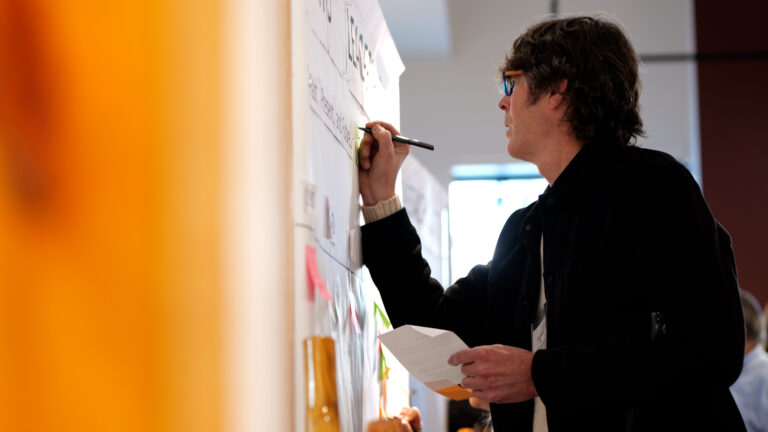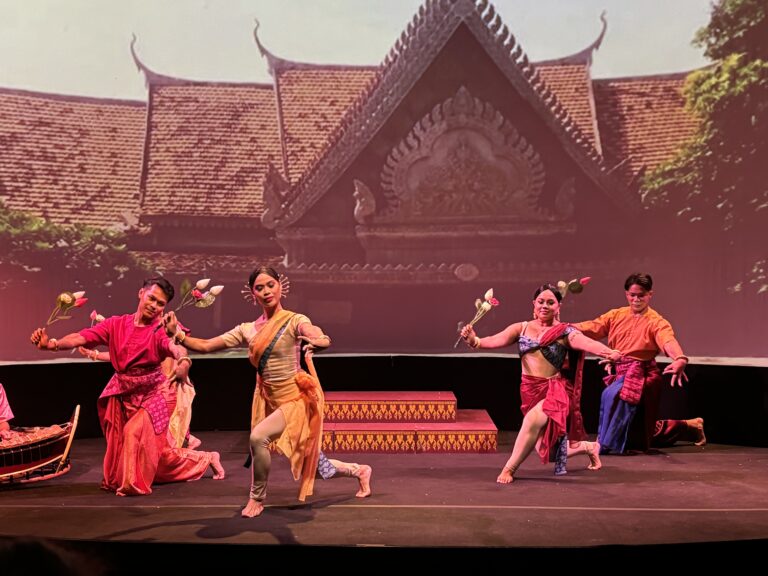An Interview with Gina Ocasion, Coordinator of the statewide Massachusetts Clemente Course and Academic Director of the Springfield Clemente Course
By John Sieracki, Director of Development and Communications

John Sieracki: Tell me about your childhood and experiences that led you along the path toward literature and teaching.
Gina Ocasion: I grew up in Redding, California, which most people know as just a sign on I-5. My dad emigrated from the Philippines with his family. My grandpa was in World War II. They came over as American citizens. There was a strong focus on education throughout my life because no one in my family had been able to afford an education. They were focused on the education of the second generation, and did a lot to give me access.
JS: Who were your influences as a student?
GO: When I was finishing my master’s, I started working with a professor in American studies who inspired me by expanding on my concept of the book. A book is more than the words on the pages. It includes everything that informed the book. It includes everything that the book has gone on to inspire. The book is a product of the larger culture. In those classes, we used a book as an entry point to think about what’s happening in the world and what the book does to inspire change in the world after it appears. A book is not purely an examination of whatever representations are happening in the language itself. It also includes all of the things that are at stake once that language is out into the world and all of the things its language is responding to. It was a shift for me in thinking about the importance of English and literature studies and American studies.
JS: What kinds of things do you write? Are you working on anything now?
GO: I just finished writing an article on Angeles Monrayo who is, or was a young Filipino girl growing up in Hawaii. It continues my focus in childhood studies, while allowing me into an interrogation of my own family’s history and thinking about Filipino American culture and literature. Angeles’ diary, edited by her daughter, is an amazing archive giving voice to the experience of a 12-year-old girl in the Hawaii sugar plantations. The literature about those experiences is dominated by men. Mostly men were recruited from the Philippines to work in Hawaii in the 1940s, and it’s mostly men that we see in the literature.
JS: This reminds me of a recent conversation with Sonia Nieto, also second generation, who said she never read literature by or about Puerto Ricans until she got to college. When you were growing up, did you have any access to Filipino literature?
GO: No. My family was really invested in the education of all the kids, but they themselves worked really hard and they didn’t have those authors on hand to pass down to us. But they told us lots of stories about growing up in the Philippines.
JS: Tell me about how your connection with the Clemente course, as one of the first faculty members at the Springfield course in 2016, and academic director for the past few years. What attracted you? What have been some of the highlights? What you see for the coming year?
GO: Teaching with the Clemente course has deeply informed my approach to teaching in general. This is the special thing for me about Clemente: it is constantly inspiring professors to reinvent their pedagogy and reinvest in the classroom. Every new class presents new perspectives on the course materials and how they inspire people to relate to the ideas, make them their own, and see them reflected in their communities. The connection between the course materials and community lies at the heart of Clemente. Our scholars are able to take what they learn in class and use it to re-see their home space and to make sense of what’s happening in the world. This makes it much more meaningful than typical university intro courses. As faculty members, we witness the scholars’ lives changing as the course progresses.
Moving into the academic director role a few years ago, I’ve been able to see how other professors approach their course materials, connect with Clemente students, and build on what has come before. It’s an amazing privilege and gives me a way to support the faculty, make connections between the disciplines, and support students from a broader perspective. I love being able to create stability for the students and ensure that the core faculty will support them throughout the course.
JS: Do Clemente students or alumni have any influence on the syllabi? Have you taught anything written by a Clemente student?
GO: I was on a call recently discussing ways to have Clemente alumni take on leadership roles. Part of that is influence in the changing syllabi over the years. Everyone changes their syllabi based on what was successful in the last year and trying to build on that, do something new in the coming year. This year, all of our Clemente students around the state will get this anthology of their essays called This Is Your Democracy. Some sites will give it to students as examples of the kinds of writing we do in Clemente; some will engage with it critically. Either way, the goal is to inspire students to put their own ideas on the page because they know that we value their writing, their ideas, and their participation. Bringing the students back into the classroom in written form is a powerful experience for everyone involved.
Several sites have Clemente alumni tutors, people that have been through it before and can speak from relevant experience. They know the challenges for non-traditional students trying to juggle coursework and family while producing, writing, and engaging thoughtfully with the ideas we present.
JS: Beyond the core course—the five subjects taught in the yearlong program for six college credits—what’s going to be happening this year with the writing courses, or any other kind of mini courses, field trips, or other enhancements?
GO: We’re working on the course outline, but the individual sites take the lead on what they would like to offer, based on the needs of their communities, the gaps that need filling. The special topics courses are incredibly popular. Alumni want more than just the yearlong program. With the one credit that comes with each special topics course, they are an amazing way for people to both stay engaged and continue working towards their degree goals. So far, they’ve been specific to Massachusetts, taking up the history and the culture of the Commonwealth in really diverse ways, and showing how history informs our contemporary moment.
The Brockton site, for example, broke up the course into four different weeks each with a different speaker talking about the history of Brockton from a different discipline. In Springfield, we talked about social justice in Massachusetts. In western Mass, we have an amazing archive of the history of social justice through the David Ruggles House and the history of the Underground Railroad as it went through Springfield. Students put together the pieces of history gathered from different sources, and then fill in the course material with their own family histories and knowledge of social justice movements. It’s powerful when the course material is so deeply connected to the community.
In Worcester, they studied Black soldiers in the Civil War, and how monuments speak to contemporary understanding of historical moments. They learned about engaging with hidden and silenced histories and narratives in the region.

JS: The Clemente course remains online, although part of the essential fabric of the course has been working with cohorts of neighbors, people living in close physical proximity to each other, thereby helping a community that is set within a geographic space. Going online, people could conceivably participate from anywhere. There are different advantages and disadvantages to taking an online course, including access to technology. How do you see this playing out, assuming that at some point in the near future we will be able to have both in-person and online classes?
GO: The transition starting in the fall of 2020 was hard because we weren’t sure what kinds of scaffolding we would need to provide for students. After going through those growing pains, seeing students not only build community in a Zoom classroom, but also grow in their technical fluency along with their knowledge and engagement in the humanities, was dramatic. It’s a necessity now for students to be able to log into their computer, understand how to get to email, and know how to navigate the web. Providing those basic skills as they were woven through the classes was not something that we had foreseen, but it has now become an important and continuing part of Clemente.
I don’t know that we can now separate that kind of weaving of digital literacies with the humanities, because all of our digital archives are now accessed online. As a lover of books, libraries, and archives, I hate to say it, but we don’t need to go to the stacks anymore. So many primary materials we need have been digitized and we can access them together in a Zoom room. We can engage with them as if we were in a reading room at the American Antiquarian Society, with the added advantage of being able to have a conversation.
Online classes also provide much easier access for guest speakers. In addition, being online has helped greatly with retention. Students log in wherever they are. Students don’t have to stay home from class because their babysitter fell through, for example, or because there’s five inches of snow. All of this makes for a more dynamic classroom in lots of ways.
I hope we can continue to really offer the two things together, a hybrid of in-person and online. We’ve also been providing Chromebooks to students who need them. It’s really hard to type and edit an essay on a phone!




